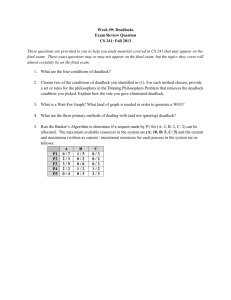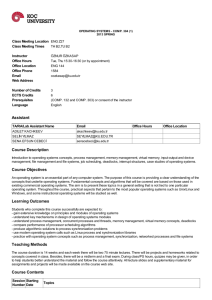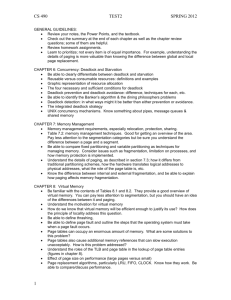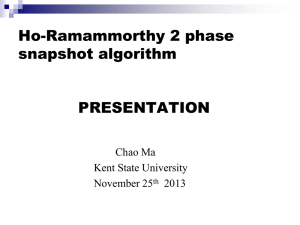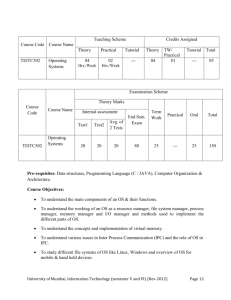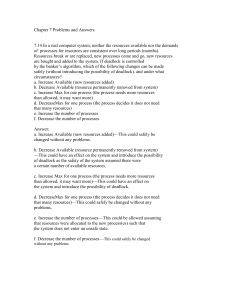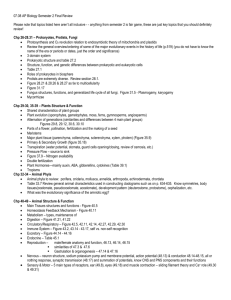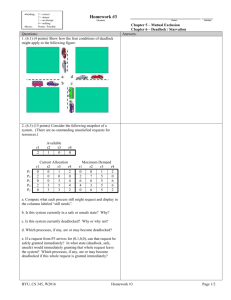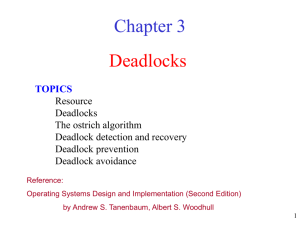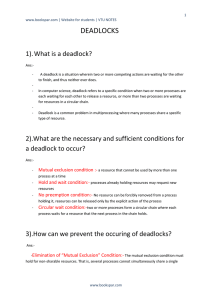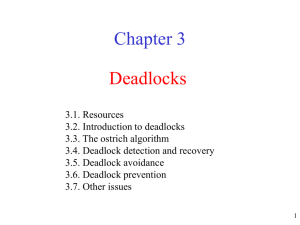Week
advertisement
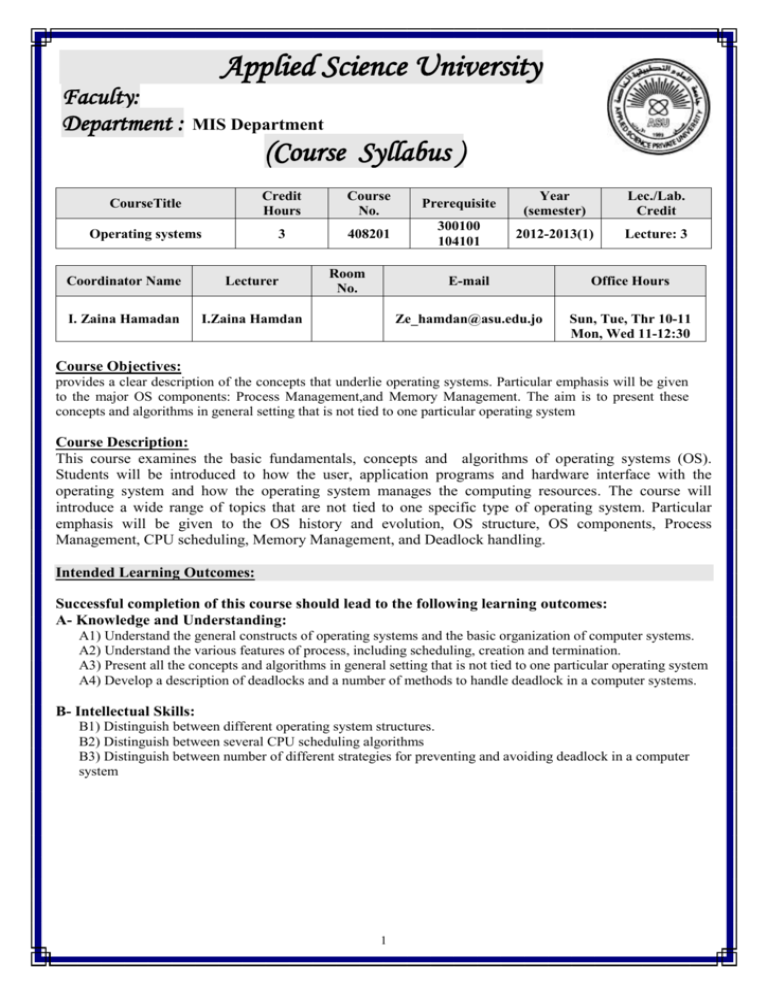
Applied Science University Faculty: Department : MIS Department (Course Syllabus ) CourseTitle Credit Hours Course No. Prerequisite Year (semester) Lec./Lab. Credit Operating systems 3 102804 300100 104101 2042-2013(4) Lecture: 3 Coordinator Name Lecturer I. Zaina Hamadan I.Zaina Hamdan Room No. E-mail Office Hours Ze_hamdan@asu.edu.jo Sun, Tue, Thr 10-11 Mon, Wed 11-12:30 Course Objectives: provides a clear description of the concepts that underlie operating systems. Particular emphasis will be given to the major OS components: Process Management,and Memory Management. The aim is to present these concepts and algorithms in general setting that is not tied to one particular operating system Course Description: This course examines the basic fundamentals, concepts and algorithms of operating systems (OS). Students will be introduced to how the user, application programs and hardware interface with the operating system and how the operating system manages the computing resources. The course will introduce a wide range of topics that are not tied to one specific type of operating system. Particular emphasis will be given to the OS history and evolution, OS structure, OS components, Process Management, CPU scheduling, Memory Management, and Deadlock handling. Intended Learning Outcomes: Successful completion of this course should lead to the following learning outcomes: A- Knowledge and Understanding: A1) Understand the general constructs of operating systems and the basic organization of computer systems. A2) Understand the various features of process, including scheduling, creation and termination. A3) Present all the concepts and algorithms in general setting that is not tied to one particular operating system A4) Develop a description of deadlocks and a number of methods to handle deadlock in a computer systems. B- Intellectual Skills: B1) Distinguish between different operating system structures. B2) Distinguish between several CPU scheduling algorithms B3) Distinguish between number of different strategies for preventing and avoiding deadlock in a computer system 1 Course Contents: Week Topics 1 Introduction 2 3 System Structures 4 5 Process Management 6 7 Threads 8 9 10 Process scheduling 11 Deadlocks 12 13 14 15 16 Memory Management Strategies Topic Details What is an operating system? O.S. history Mainframe Systems □ Simple Batch Systems □ Multiprogrammed Batch Systems □ Time-Sharing Systems Parallel Systems Distributed Systems Real -Time Systems System Components Operating System Services System Calls System Structure Virtual Machines Process Concept Process Scheduling Operations on Processes Cooperating Processes Interprocess Communication Introduction Motivation Benefits of Multithreading User and Kernel Threads Multithreading Model Basic Concepts Scheduling Criteria Scheduling Algorithms Basic Concepts System Model Deadlock Characterization Methods for Handling Deadlocks Deadlock Prevention Deadlock Avoidance Deadlock Detection Recovery from Deadlock Combined Approach to Deadlock Handling Background Swapping Contiguous Memory Allocation Paging Segmentation memory protection Final Exam 2 Reference (chapter) Assessment [1]Chp.1 [1]Chp.2 FIRST EXAM [1]Chp.3 [1]Chp.4 [1]Chp.5 SECOND EXAM [1]Chp.8 [1]Chp.8 FINAL EXAM Course quality improvement : Course quality improvement : From the market and new subjects in the field. From the monitoring of students feedback (Reports /Quizzes/ Seminar / Tutorials ….) Grade Distribution: Assessment Grade - First Exam - Second Exam - Assignments (Reports /Quizzes/ Seminar / Tutorials ….) - Final Examination Date 20% 20% 10% 50% Reading List: Text Book Other References [1] Operating System Concepts : A. Silberschatz, P. Galvin, 8th edition, John Wiley,2010 [2] Operating Systems, Internals and Design Principles : W.Stallings, Prentice Hall. [3] Applied Operating System Concept : A. Sillberschatz, P.B. Galvin, John Wiley. [4] Handouts and slides distributed by lecturers. 3
